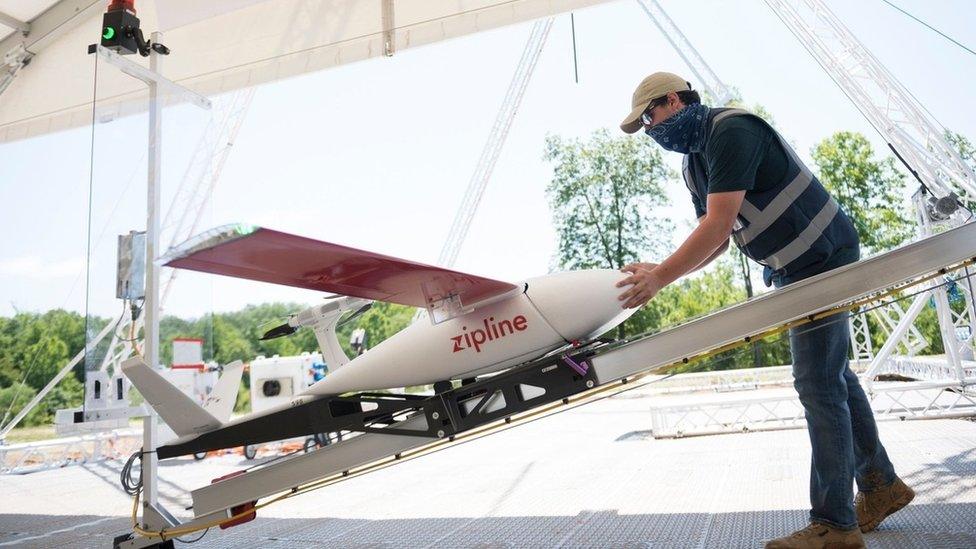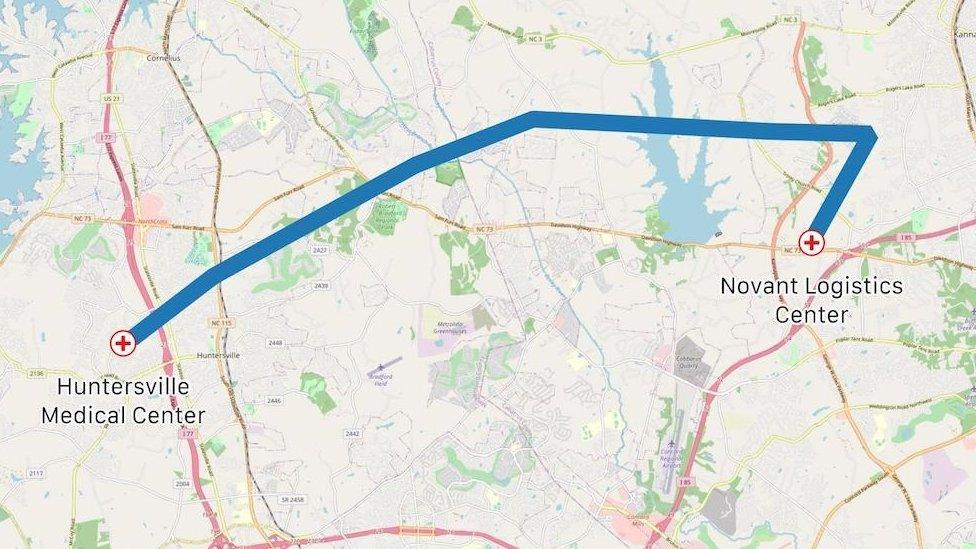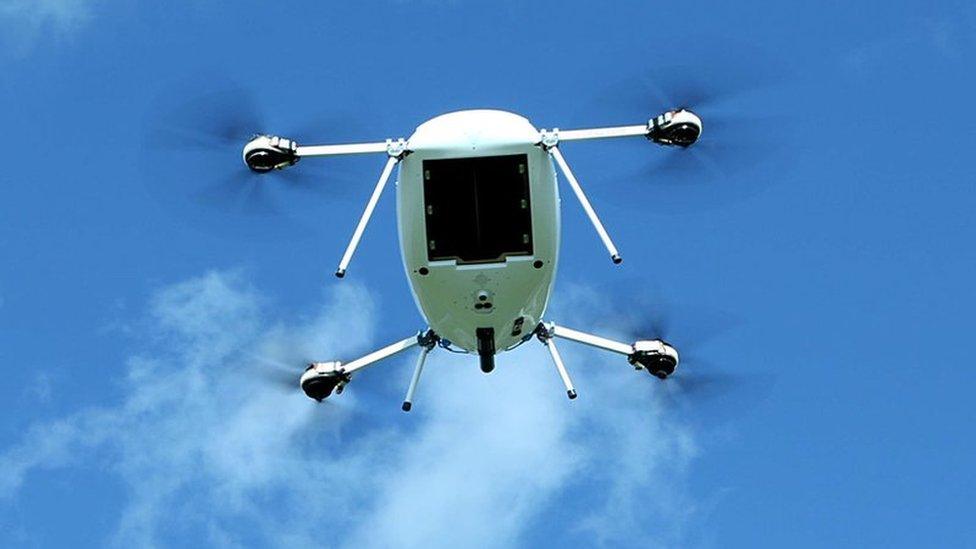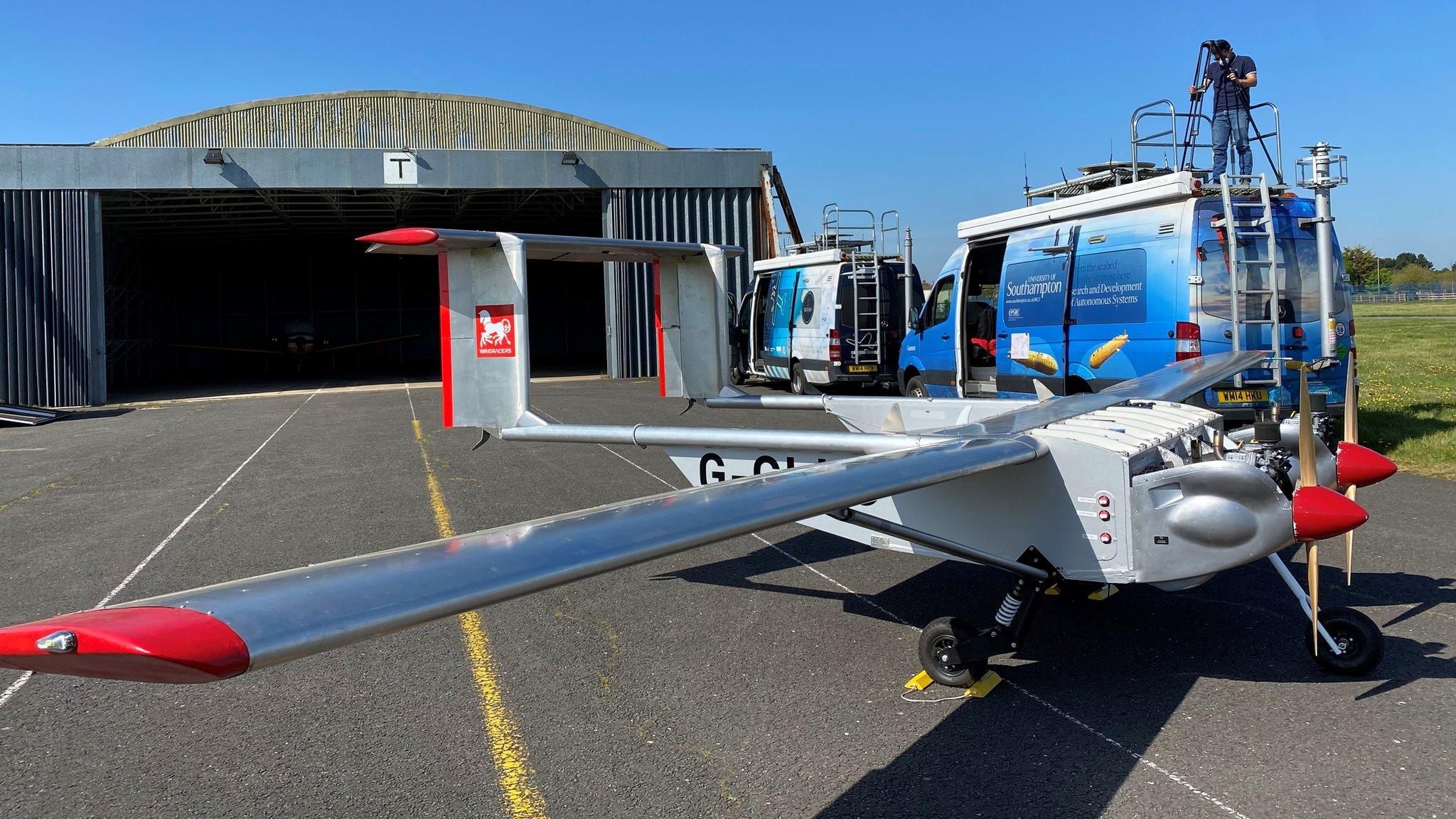Zipline drones deliver supplies and PPE to US hospitals
- Published

Drones are loaded in a special warehouse and goods are dropped via parachute
Drone firm Zipline has been given the go-ahead to deliver medical supplies and personal protective equipment to hospitals in North Carolina.
The firm will be allowed to use drones on two specified routes after the Federal Aviation Administration granted it an emergency waiver.
It is the first time the FAA has allowed beyond-line-of-sight drone deliveries in the US.
Experts say the pandemic could help ease some drone-flight regulations.
Zipline, which has been negotiating with the FAA, wants to expand to other hospitals and eventually offer deliveries to people's homes.
It has been granted a waiver for two routes involving round trips of up to 30 miles (48km).
The drones will launch from a nearby fulfilment centre and drop off a box of medical products by parachute at a designated spots. The drones can carry up to almost 4lb (1.8kg) of cargo and can fly at up to 80mph, even in rain or wind.

The route is currently short but Zipline hopes eventually to deliver to other hospitals and even homes
"The Covid-19 pandemic has tasked us with being even more nimble and innovative in how to solve complex challenges," said Angela Yochem, chief digital officer of Novant Health, which is the partner for the service.
"Fast-tracking our medical drone transport capability is just one example of how we're pioneering in the health care industry, which is known for being resistant to change,"
Zipline has struggled to find a commercial foothold in the US market, but chief executive Keller Rinaudo said he hoped the North Carolina example could "provide the rest of the country with a blueprint" for future healthcare deliveries.
The pandemic has prompted a handful of new drone deliveries.
The Windracers Ultra fixed-wing drone has been delivering PPE from Hampshire to the Isle of Wight - a 10-minute journey - and in Ireland, Manna Aero is working with the health authority to deliver prescriptions and other essential supplies to a small rural town.
Robotics expert Prof Noel Sharkey believes the pandemic could make drone deliveries more common.
"In a global pandemic everything changes," he said.
"Rules and laws need to be manipulated and restrictions lifted to enable the use of all possible technological advantages to save large numbers of lives.
"The problem of course is how to wind back the clock on tech once we are out of the Covid-19 crisis."
- Published30 April 2020

- Published24 April 2020
